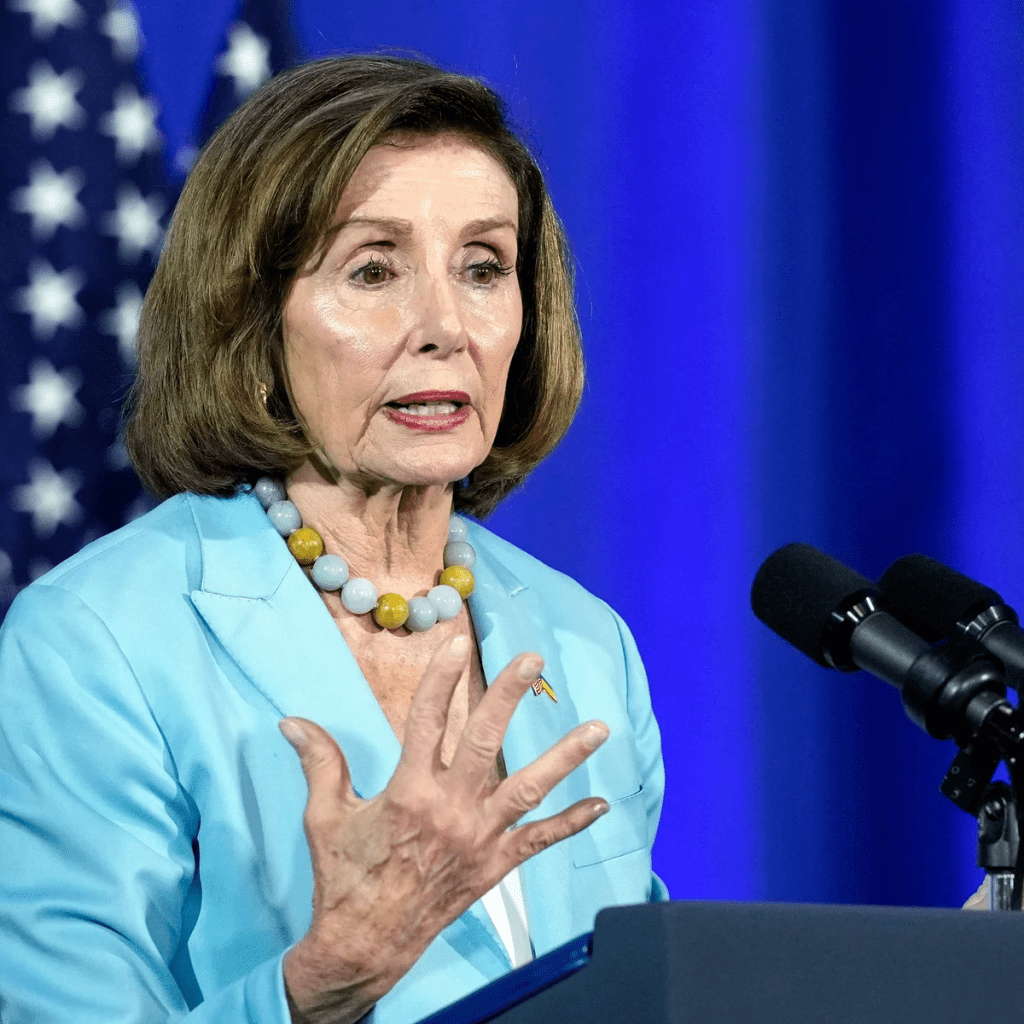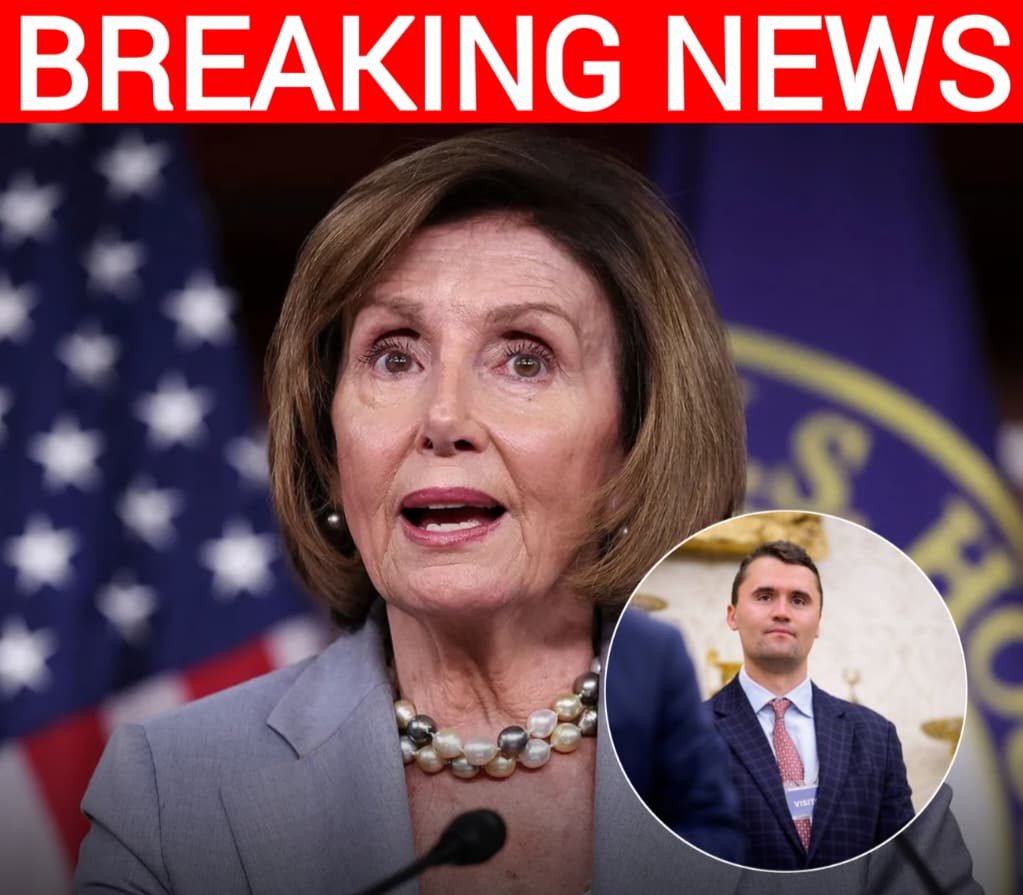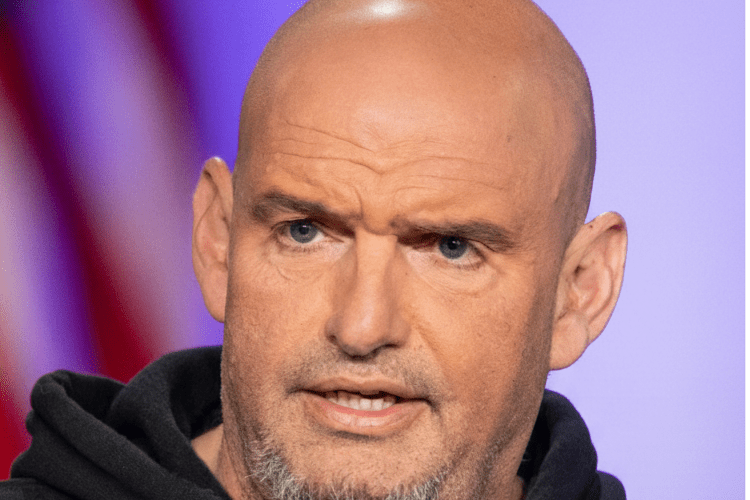Nancy Pelosi Shocks Viewers by Defending Democrats’ Rhetoric After the Killing of Charlie Kirk
There are moments in politics when words matter more than anything else, when the language used by leaders is held up to the light and judged for what it really means. After the killing of Charlie Kirk, people everywhere expected strong voices to rise up with compassion, responsibility, and clarity. That’s why Nancy Pelosi’s comments have caused such a wave of shock and anger across the country. Instead of owning the weight of words, she seemed to brush off any responsibility, and in doing so, she lit a fire that has spread far beyond Washington.

Pelosi said, “People don’t have the intention of saying something that will lead to something dangerous BUT we cannot take responsibility for the minds that are out there and how they hear it.” For many Americans, that line felt like a dodge, a way of saying that Democrats could say what they want and walk away from whatever consequences might follow. The problem is that rhetoric has power. Speeches, debates, and heated comments don’t just vanish into thin air. They are heard, repeated, and sometimes twisted by people looking for a reason to act on dark thoughts. Words are the sparks that can ignite bigger fires, and pretending otherwise feels like a betrayal to those who know firsthand the impact language can have.
Charlie Kirk’s death has already left a deep wound in people who followed his work, his debates, and his strong presence in public life. Supporters see him as someone who wasn’t afraid to speak out, who challenged people head-on, and who always believed in the importance of dialogue, no matter how difficult. When news of his death broke, even those who disagreed with him recognized the tragedy of a young life lost to violence. That’s why Pelosi’s comment lands with such bitterness. It wasn’t only that she refused to acknowledge the weight of what Democratic rhetoric might have stirred, but that she seemed almost dismissive, as though the responsibility was too heavy to bother carrying.

For years, Pelosi has been one of the most powerful and experienced figures in American politics. She knows better than anyone how the words of leaders ripple out into the public. When someone at her level speaks, it isn’t just chatter—it shapes headlines, guides conversations, and influences behavior. To say she can’t take responsibility for how people hear it is to deny the very reality of her role. Leaders are held to higher standards because their words are magnified. They don’t just speak to their base; they speak to the entire nation, and sometimes even beyond.
The frustration people feel right now is rooted in a simple expectation: when tragedy strikes, leaders should step forward with humility and strength. They should comfort the grieving, calm the divided, and offer accountability where it’s needed. By refusing to accept even the possibility that Democratic rhetoric could fuel dangerous outcomes, Pelosi seemed to close the door on reflection. And in doing so, she widened the divide at a time when healing was most needed.
It’s not about silencing political opponents or blaming one side alone. It’s about acknowledging that words are weapons when used carelessly. Every politician knows this. Every viewer of a heated debate knows this. And yet, here we are, with one of the highest-ranking Democrats essentially saying those words are not her problem. That contradiction is what makes her statement sting. People want leaders who recognize both their power and their responsibility, not leaders who shrug when the consequences appear.
The days ahead will no doubt bring more reactions, more debates, and more commentary from both sides. But for now, one thing is clear: Nancy Pelosi’s defense of Democrats’ rhetoric has only deepened the frustration and anger of many Americans. It wasn’t just what she said, but what she didn’t say. She didn’t offer comfort to those mourning Charlie Kirk. She didn’t acknowledge the seriousness of violent outcomes tied to rhetoric. She didn’t seize the chance to remind Americans that leaders must choose their words carefully. Instead, she shifted the blame onto “the minds that are out there,” as if leaders themselves have no duty to measure their impact.
That choice will follow her. It will echo in the days and weeks ahead. And for many who heard it, it will be remembered as a moment when Pelosi showed where her priorities really lie. The tragedy of Charlie Kirk’s death deserved better than a shrug. It deserved words of compassion, responsibility, and strength. Instead, it got deflection. And that is something that will not be forgotten anytime soon.



